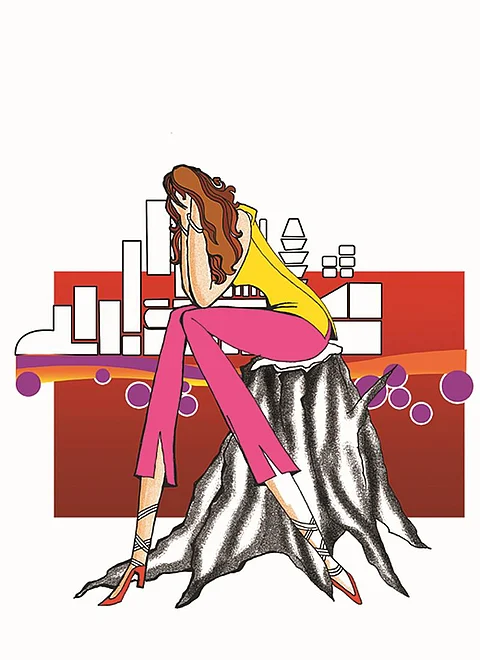

Far more people read about palace hotels and upmarket resorts than can actually afford to stay in them. It&rsquos an aspirational thing, of course. But if our aspirations indeed lie in the broad direction of affluent hedonism, then travel writing about luxury should be able to tell us something very important what is it like to get what we want
The seminal work here must surely be David Foster Wallace&rsquos novella-length piece in Harper&rsquos Magazine, &lsquoShipping Out On the (Nearly Lethal) Comforts of a Luxury Cruise&rsquo, which manages to simultaneously be profound and laugh-out-loud funny. Wallace concludes that since he responds automatically to even extreme pampering by raising the bar to a level where there is simply no satisfying him, the promise made by luxury must be an unkeepable one. Much writing about luxury travel tends to settle into a vaguely PR-ey tone. Here is Wallace&mdashcontinually smiled at by the ship&rsquos crew&mdashon finding that a writer he respects has written an &lsquoessaymercial&rsquo about the cruise &ldquoAn ad that pretends to be art is&mdashat absolute best&mdashlike somebody who smiles at you only because he wants something from you. This is dishonest, but what&rsquos insidious is the cumulative effect that such dishonesty has on us since it offers a perfect simulacrum of goodwill without goodwill&rsquos real substance, it messes with our heads and eventually starts upping our defences even in cases of genuine smiles and real art and true goodwill. It makes us feel confused and lonely and impotent and angry and scared. It causes despair.&rdquo
Slightly more hopeful is David Sedaris&rsquos hilarious New Yorker essay &lsquoJourney into Night&rsquo, in which a shared humanity eventually bridges the chasm between two seats on an overnight flight. A man on his way to his mother&rsquos funeral is shifted into the seat next to Sedaris&rsquos because other passengers have complained about his weeping. The presence of a grieving man cramps Sedaris&rsquos ability to enjoy the comforts of the $8,000-a-ticket Business Elite class. Sedaris becomes resentful, suspects that his neighbour is putting on a display and, in defiance, starts watching a Chris Rock comedy. His attempts to stifle his laughter take him back to childhood family dinners where his father would try in vain to stop the children from laughing. The piece ends &ldquoCould that really have been forty years ago The thought of my sisters and me, so young then and so untroubled, was sobering, and within a minute, Chris Rock or no Chris Rock, I was the one crying on the night flight to Paris. It wasn&rsquot my intention to steal anyone&rsquos thunder a minute or two was all I needed. But, in the meantime, here we were two grown men in roomy seats, each blubbering in their own élite puddle of light.&rdquo
In The Middle Passage, V.S. Naipaul writes of being invited to a resort in Jamaica called Frenchman&rsquos Cove. The place was legendary for giving guests anything they wanted for a large, but not astronomical, flat rate any food they fancied, unlimited drink, horses, yachts. Guests could even eat or stay at another hotel and Frenchman&rsquos would take care of the bill. Naipaul writes &ldquoNo decision could be regretted. I gave up. I left everything to the chef. I never ordered a meal and the next day I went without dinner. The struggle between duty, to indulge and inclination, which was not to bother, was unequal. I fell into a torpor.&rdquo A longer piece by Robert Coughlan in the May 30, 1960 issue of Sports Illustrated describes how Coughlan and his wife initially try to test the limits&mdashshe washes her hair in the best beer, he tries to drink his weight in champagne&mdashbut soon realise that given the freedom to have anything, they want almost nothing. Coughlan interviews the owner of the resort and finds that this is by design Frenchman&rsquos is really a sort of spiritual retreat masquerading as luxury resort.
If luxury can flip into austerity, it can work the other way as well. Petrarch in the twelfth century considered his climbing a hill just for the view an act of great indulgence. He describes the trek to a friend in a long letter called &lsquoThe Ascent of Mount Ventoux&rsquo. Petrarch is amazed by the hills and the clouds and scenery and, when he reaches the top, he opens his copy of St Augustine&rsquos Confessions. His eyes fall on the words &ldquoAnd men go about to wonder at the heights of the mountains, and the mighty waves of the sea, and the wide sweep of rivers, and the circuit of the ocean, and the revolution of the stars, but themselves they consider not.&rdquo Petrarch is chastened and returns without a second look at the mountain, resolving to turn his gaze inwards.
Luxury, then, is seldom all it&rsquos made out to be. But sometimes, oddly, it&rsquos much more.
